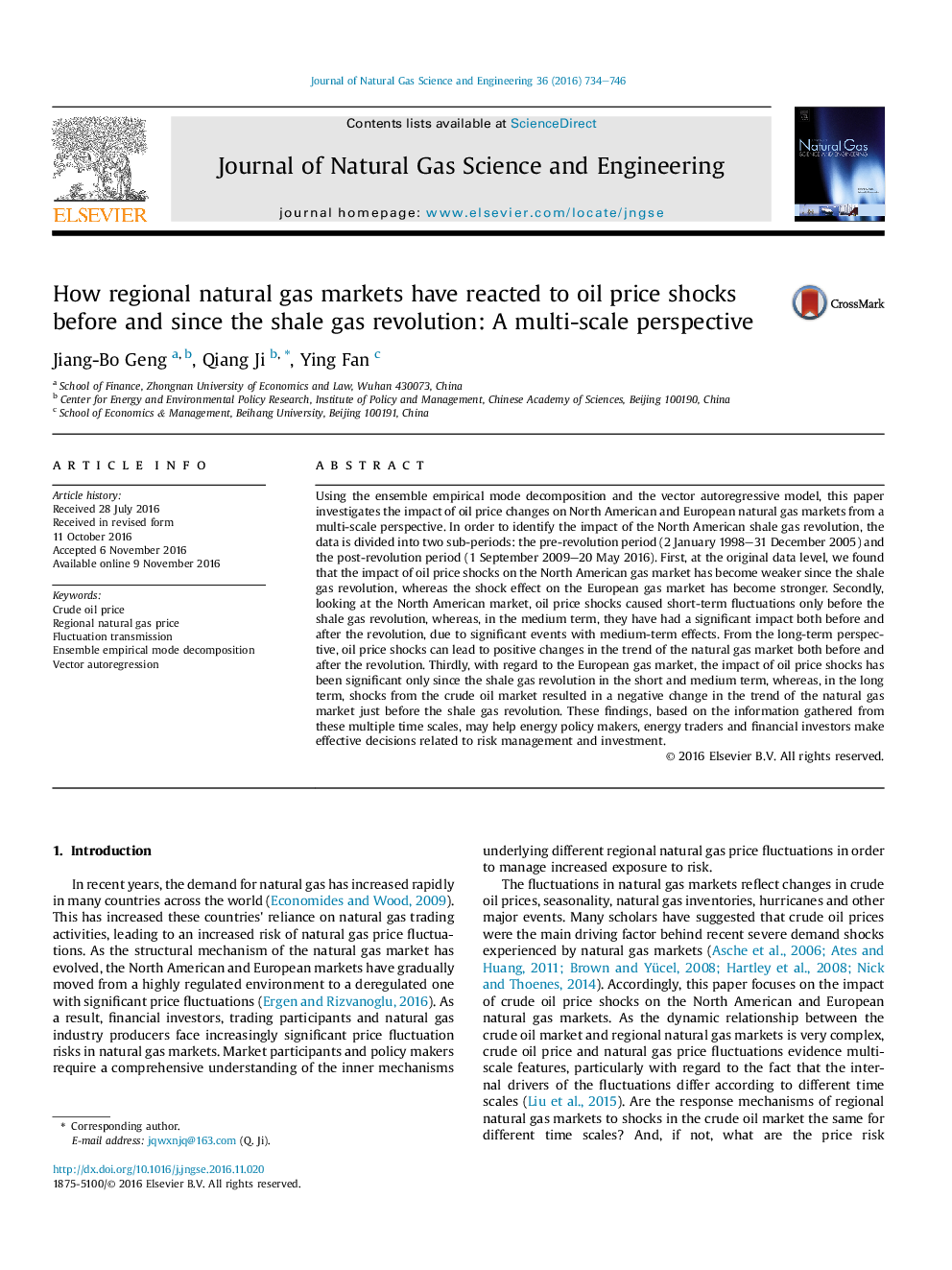| Article ID | Journal | Published Year | Pages | File Type |
|---|---|---|---|---|
| 5484861 | Journal of Natural Gas Science and Engineering | 2016 | 13 Pages |
Abstract
Using the ensemble empirical mode decomposition and the vector autoregressive model, this paper investigates the impact of oil price changes on North American and European natural gas markets from a multi-scale perspective. In order to identify the impact of the North American shale gas revolution, the data is divided into two sub-periods: the pre-revolution period (2 January 1998-31 December 2005) and the post-revolution period (1 September 2009-20 May 2016). First, at the original data level, we found that the impact of oil price shocks on the North American gas market has become weaker since the shale gas revolution, whereas the shock effect on the European gas market has become stronger. Secondly, looking at the North American market, oil price shocks caused short-term fluctuations only before the shale gas revolution, whereas, in the medium term, they have had a significant impact both before and after the revolution, due to significant events with medium-term effects. From the long-term perspective, oil price shocks can lead to positive changes in the trend of the natural gas market both before and after the revolution. Thirdly, with regard to the European gas market, the impact of oil price shocks has been significant only since the shale gas revolution in the short and medium term, whereas, in the long term, shocks from the crude oil market resulted in a negative change in the trend of the natural gas market just before the shale gas revolution. These findings, based on the information gathered from these multiple time scales, may help energy policy makers, energy traders and financial investors make effective decisions related to risk management and investment.
Related Topics
Physical Sciences and Engineering
Earth and Planetary Sciences
Earth and Planetary Sciences (General)
Authors
Jiang-Bo Geng, Qiang Ji, Ying Fan,
